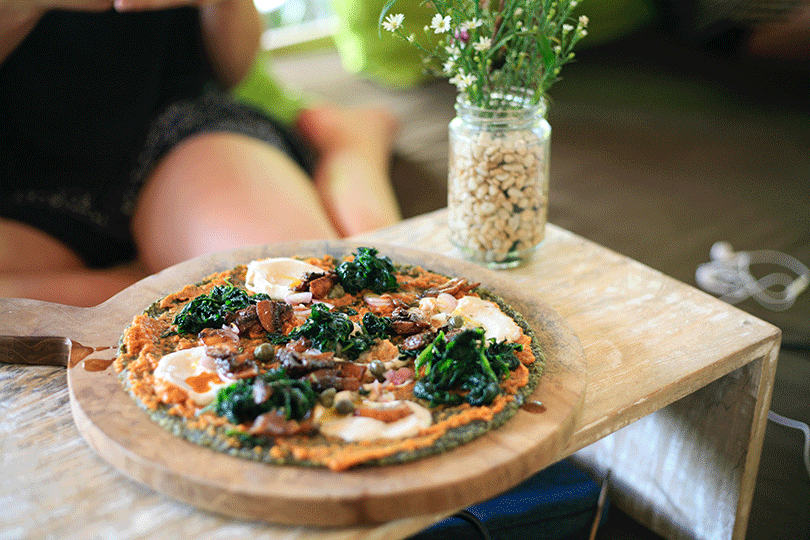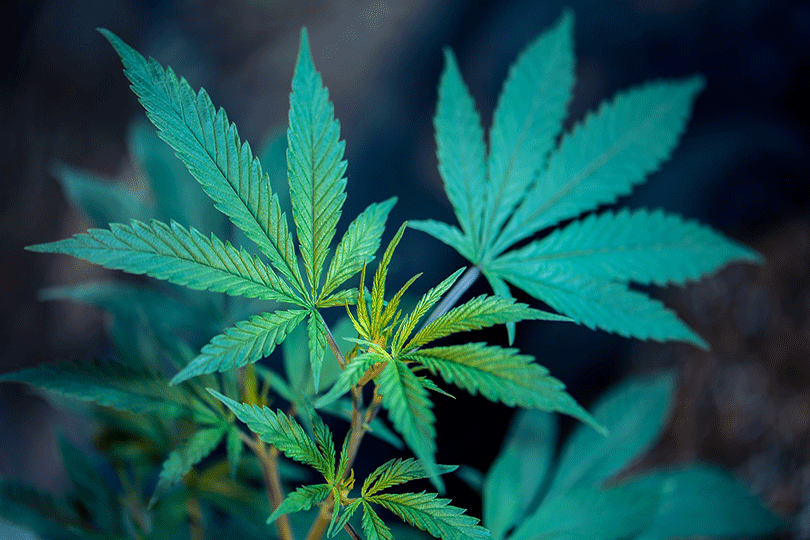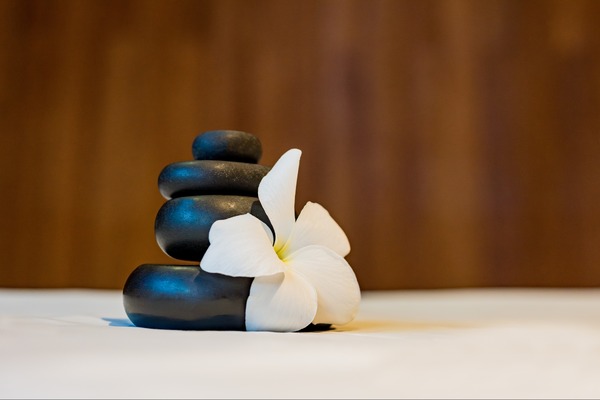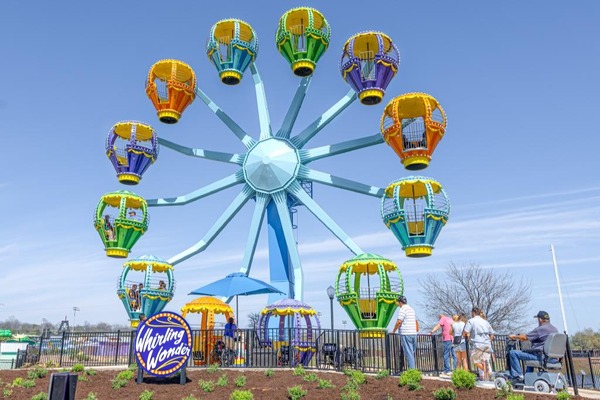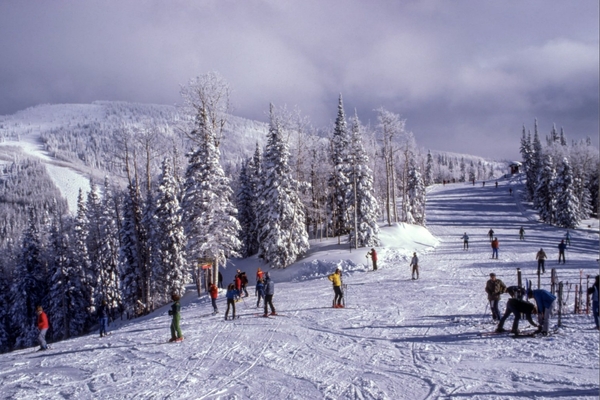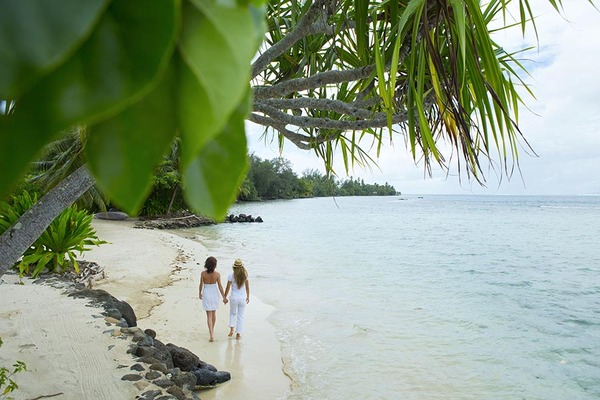Taking green living to a whole other level
Veganism, cannabis-travel, sober living and a boom in pet ownership have been strengthened as a result of the pandemic and look set to be trends that will influence future travel demand, according to a new report.
So says trends intelligence company Stylus, which suggests travel brands should continue to pay heed to these stick-around trends if they want to appeal to clients as we evolve into a new situation of coping with, or accepting that the Covid-19 virus is a part of our lives.
Brands should consider creating products and inspiration that will stimulate demand among these cohorts, with research by Stylus showing a boom in all of these four areas, as well as a surge in what it calls Professional Leisurists.
In its new report, Meet The Mass-Niche Travellers, Stylus says these particular areas of consumer behaviour show little signs of slowing down, providing an opportunity for travel brands to make sure they understand the demands of such travellers as they look to get on the move again.
One example is pet ownership, which has rocketed during lockdown, as people seized the opportunity of having more time at home to welcome animals into households; these consumers will soon be on the move, looking for more pet-friendly options, Stylus says.
“Tomorrow’s travellers will pay handsomely for products that reflect and respect their lifestyle interests and priorities, offering cross-sector brands an attractive opportunity to monetise evolving needs,” says Mandy Saven, director of Consumer Lifestyle at Stylus.
In the report, Stylus identifies five post-pandemic travel cohorts – Mainstreamed Vegans, Canna-Experimentalists, Passionate Pet Parents, Hip Soberists and Professional Leisurists – which have now transcended, or are transcending, what were once niches, instead now taking on “mass status”.
Vegan variety
Could your hotel offer more vegan meals, restaurants, retreats? As a travel company, are you considerate to these needs? You should be, as veganism is becoming a norm, according to Stylus, rather than an exception now.
"With veganism no longer a niche lifestyle choice, the vegan travel opportunity will inevitably become as prolific”, says Saven, with the report noting that according to The Vegan Society, 20% of Brits reduced their meat consumption during the pandemic, with the global vegan food market predicted to be worth $24.3 billion by 2026 (Acumen Research and Consulting, 2019).
The Stylus report highlights companies already active in the trend such as Saorsa 1875 in Scotland, the UK’s first 100% vegan hotel with vegan bedding, toiletries, cleaning products and staff uniforms; and the drive by The Vegan Society and Humane Society International’s s website FlyVe to provide consumers with an online rating system for vegan in-flight meals; Air New Zealand is currently in first place.
There are also vegan surf retreats by Green Waves in Portugal, while the Vegan Surf Camp operates in the south of France, notes the report.
Blazing a trail
Moving on to explore ‘Canna-Experimentalists’, Stylus reports that during the pandemic, in select US states cannabis was considered an “essential” business, meaning the supply wasn’t interrupted.
The substance has also said to have benefitted from its potential ability to prevent lung inflammation, a symptom of Covid-19.
Now, with the global legal marijuana market set to be worth $73.6 billion by 2027 (Grand View Research, 2020), Stylus says “canna-tourism” could appeal to all users, from “casual experimentalists to knowledgeable purists”.
It highlights how Portland hotel The Jupiter offers guests an Everything but the Weed Kit, which includes coupons for its local partner dispensary as well as required paraphernalia. Meanwhile, Californian cannabis delivery service Eaze offers guests at Santa Monica’s Fairmont Miramar Hotel & Bungalows a menu of low-dose cannabis edibles and CBD products.
Also tapping into this opportunity, American boxer Mike Tyson has announced plans to open a 420-acre luxury cannabis-friendly resort in California in 2021, “offering glamping, the world’s longest lazy river (a water park ride with a slow current) and live music”.
Stylus points out that Canada, which legalised recreational cannabis in 2018 and hosted the world's first Cannabis Tourism Summit in October 2019, now has the world’s first cannabis-friendly golf course, Rolling Greens, in Ontario, where weed can be enjoyed during play.
And New Zealand may become the first Asia-Pacific country to lift the ban on recreational cannabis by this November, thereby attracting new tourists when its borders eventually open.
Hip to be sober
Many travel and experience companies and brands had already started marketing to an increasing number of consumers turning their backs on alcohol before the crisis – and now with more than a quarter of Brits drinking less during lockdown (Global Drug Survey, 2020), this could be another target market.
The Stylus report also highlights how the non-alcoholic beverage market is expected to reach $1.6 trillion in sales by 2025.
“This behavioural shift will accelerate the appeal of sober travel post-pandemic, paving the way for hospitality brands to offer cleaner, clarity-driven experiences,” says Laura Swain, editor – Food, Beverage & Hospitality, at Stylus, suggesting that more companies should try and appeal to the growing band of Hip Soberists.
The report highlights how Spanish sober travel brand We Love Lucid is offering alcohol-free culture and adventure trips for solo travellers in southern Spain, while hotels are also getting wise to the trend.
Danish hotel group Brochner is offering non-alcoholic drinks menus with sober versions of its classic cocktails, such as Dark and Stormy and a non-alcoholic gin and tonic; to replicate alcoholic burn, capsaicin (chilli peppers’ spicy element) is added to drinks.
Meanwhile Hilton Hotels’ mid-priced brand Tempo (planned to launch in 2021) will prioritise non-alcohol options for its in-lobby Fuel Bar menus, with all cocktails available with or without alcohol.
Animal magnetism
Another shift accelerated during lockdown has been pet ownership, with Stylus suggesting brands might like to give even higher consideration to “Passionate Pet Parents” from now on.
The pandemic has fuelled a pet adoption boom as more individuals embrace working from home and seek companionship, Stylus says, highlighting that by 2023 in the US there will be 92 million households with at least one pet, up from 85 million in 2018 (CNN, 2020).
“With this in mind, travel, hospitality and leisure brands must swiftly transition from being ‘pet-friendly’ to being ‘pet-centric’ in order to appeal to a new wave of dedicated pet parents, many of whom are keen to spoil and dote on their furry friends at home and on the road,” says Stylus' Swain.
The report also points out that nearly half (49%) of global pet owners would pay more to stay in pet-friendly accommodation.
Pet-friendly options at hotels have been well documented in recent years, but the report highlights how Las Ventanas al Paraiso in Mexico provides canine guests with personalised beach cabanas, “doga” and massage therapies, while pet butlers provide unlimited walks and pet-sitting.
Stylus also tells of Top Dog Pet Travel, a pet specialist travel agency in the US, which offers outdoor excursions for pets and owners, including surf and paddleboard kayaking in California, glamping in Yosemite National Park, and glass-bottomed boat tours in The Bahamas.
At the very top end of the market, private jet operator VistaJet offers the pre-flight VistaPet service which gives access to a four-week fear of flying course, via UK pet training company The Dog House, meaning prized pets will be able to travel the world as much as their wealthy owners want them to.
The leisure principle
Another huge lockdown trend has been the adoption or development of new hobbies and leisure pursuits, leading to a growing cohort that Stylus calls Professional Leisurists.
“Lockdown has encouraged consumers to embrace new hobbies and sharpen their skill sets,” explains Stylus’ Mandy Saven. “Post-pandemic, these accomplished leisurists won’t want to neglect their hard-won achievements, even while on holiday. Shrewd brands will find ways to infuse getaways with rewarding upskilling opportunities.”
The report highlights how Black Tomato’s Bring It Back itineraries facilitate dialogue between tourists, local entrepreneurs, biodiverse chefs and craftspeople.
US travel company Vacation with an Artist offers 88 mini-apprenticeships (each spanning two to 14 days) with master craftspeople in 27 countries to learn crafts that are in danger of becoming extinct. These include bamboo bicycle making in Bangalore, brass bell crafting in Takaoka, Japan, and leather shadow puppetry in Penang, Malaysia.
And for those with a really keen interest in marine biology and the environment, the UK’s Kensington Tours offers travellers the chance to join expert crews from Oxford-based non-profit Nekton on deep-sea research efforts aboard a 100ft yacht in the Seychelles.
Travel agents, tour operators, hoteliers and other luxury suppliers have an opportunity now to identify those key passions or beliefs of travellers that could well have been exaggerated as a result of the pandemic, and therefore tailor innovative products and services accordingly.
“Travel and hospitality will become ever more specialised as individualisation develops from a nice-to-have into an expectation. Consumer demands will become more intricate and intersectional; for example, when travel picks up pace post-pandemic, vegan travellers could [go so far as to] request that restaurants, hotels and airlines cite the carbon imprint of all their dishes,” concludes Saven.
• For the past two years, trends intelligence company Stylus has provided inspirational keynote speakers and presentations at the TTG Luxury Travel Summit, and partner content in TTG Luxury. Its experts identify, analyse and decode the most important global trends from across 20 industries, including Travel & Hospitality, with Stylus membership giving access to essential ideas and insights, which leading brands and agencies use to not only future-proof their businesses, but to become drivers of positive change.


